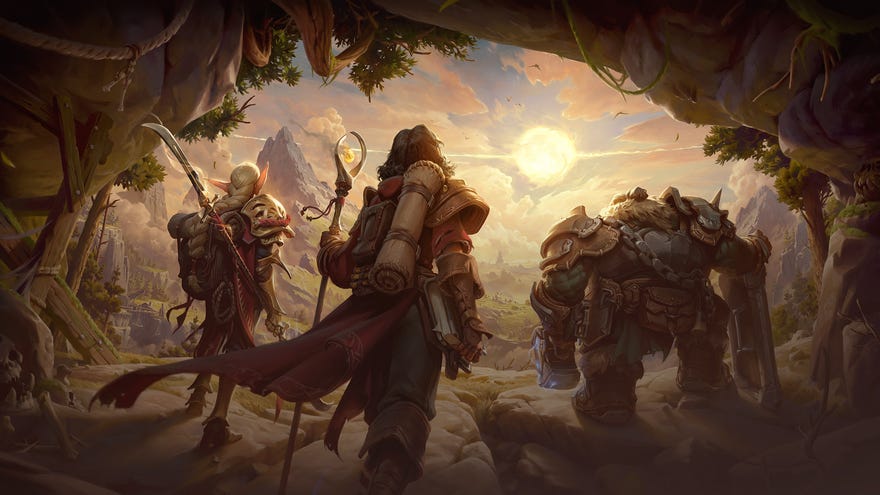IO have a policy against using AI in gamedev, but it "might be for us in the future"
Making a fantasy RPG after Hitman is a “fun challenge”
IO Interactive have found such success with Hitman over the past decade that it's hard to imagine the developer making anything else, but I have many vivid memories of its non-Agent-47-centric outings. 2010's Kane & Lynch 2 was a very special breed of spiritual ugliness, while 2003's Freedom Fighters wowed youngling me with its chunky urban squad tactics. I also have a soft spot for Mini Ninjas, one of IO's few jaunts into the realm of family-friendliness, if only because as somebody familiar with IO's other work, I could smell the blood beneath its bloodless Nickleodeon visuals.
I'm keen to hear more of the studio's forthcoming James Bond adaptation, unveiled in 2020 - surely a marriage made in franchising heaven, though I struggle to imagine an IO protagonist quipping like 007. But I'm especially eager to lay eyes on its currently untitled Project Fantasy, an online RPG inspired by "the togetherness, camaraderie, agony, and delight" of table-top gaming and more specifically, Steve Jackson and Ian Livingstone's Fighting Fantasy books.
We're not expecting a proper reveal for the latter anytime soon - or at least, nobody here's told me nuffink - but Gamereactor has published an intriguing, wide-ranging chat with IO's core engine programmer Álvaro Fernández and senior technical executive producer Cris Vega (both speak English as a second language - I've edited the transcript lightly for readability). According to Vega, making Project Fantasy is a complicated challenge; it follows on from years of obsessing over the inner workings of Hitman, whose very particular approach to social stealth has obliged the creation of some pretty specific technology.

Most "commercial or even proprietary engines", Vega told the site, focus on the GPU when making optimisations, whereas the mega NPC headcounts and vast crowds of bystanders encountered in Hitman World of Assassination levels put the emphasis on the CPU. "We are very CPU bound and we hit it hard," Vega said, adding that "the last Hitman series would not have been possible in some other commercial engines out there. They would not perform, it would just crash. So we're very optimized like that, when it comes to CPU. It's a very particular game. Most games are not built like that."
The same may not be true of the new fantasy RPG, though Vega naturally didn't go into detail. "For very long, we've been very good at third person shooters, sandboxes and then all of a sudden, Project Fantasy. So now we want to be the best at that, which is actually, I mean, it's a challenge that we also like. We've been optimizing performance for many years, AI and solving the same problems to the limit of perfection. So now we have new challenges and that's also fun for us, right? It's like, okay, now [we have] an RPG and this new technology."
While we're on the subject of technology, Fernández and Vega also discussed the, to put it mildly, contentious possibility of using AI to generate aspects of future games. "We actually try to go for a more conservative approach there, because we know [the older approach] works," Fernández told Gamereactor, when asked about the prospect of using AI-generated assets in future IO Interactive titles. "It worked for us in the past, you know, so it should work again in the end. That being said, I don't think we are completely closing that door, you know, but I don't think we're actively looking into that at the moment."
Vega noted that using AI to generate code creates a potential copyright issue, echoing Valve's anxieties from July about the "legal uncertainty" of allowing games with AI-generated content on Steam. "AI learns from other code that is out there and then if you copy certain [code], there are licenses that will mean that we have to distribute our code [in] open source, and that's something that we are very cautious about," she said. "So we actually have a policy that we shouldn't be using these technologies as of now. We recognise that they're very powerful, we recognise it might be for us in the future, but as of now, our games are done by us."
One area in which AI might be genuinely useful to IO, Fernández suggested, is in streamlining the process of motion-matching, which he summarised as a way of creating lifelike people by diving into a large database of animations corresponding to criteria such as mood. "It's kind of unstructured data, so what motion matching does is like, okay, you have this NPC or this character that wants to walk in a straight line and has this kind of mood or whatever, so motion matching will actually look at the current frame you're in, and it will try to find in that database the best fit for the animation at that point. And there's a big component of AI there, or there could be." In this case, he said, there's no copyright issue because the animations themselves are of IO's own creation.
As ever with conversations around the current generation of machine learning tech, the bigger question is to what extent companies might use it simply to cut costs and supplant human labour. Ubisoft's Ghostwriter tool attracted a mixture of fiery and supportive responses this May.

